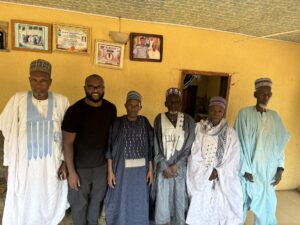Unexpected Encounters at Iseyin Cattle Market: Fieldwork with Nigeria’s Fulani Herders
Coincidences—Fieldwork is fundamentally unexpected, and many scholars love it. Others dread it because it may leave research plans in the dust, no matter how well-written. My field visits have coincided with several things, which sometimes led me to secure interviews with unexpected groups, such as when I ran into the Oodua People Congress members in Ayede-Ogbese in Ondo State; my encounter with local hunters during the Igogo festival in Owo, and with the Chiefs in Ayede-Ogbese during their daily sessions. Coincidence defines my field experience.
One recent coincidence during my return visit stands out. I had journeyed to Iseyin, located about an hour’s drive outside the ancient Ibadan city, to meet with a Miyetti Allah Chieftain, whom I had been put in touch with a day before. Once again, sheer coincidence made the group a central actor in my research. To my surprise, upon arrival, I discovered that it was Iseyin cattle market day. I was astounded by the sheer size of the gathering of Fulani Herdsmen. The Iseyin cattle market, a vibrant hub overflowing with livestock and herding accessories, is the primary market for Fulani herders in Oyo state. They travel from all the local governments in the state to sell their cattle here.

However, the market is not without its challenges. I learned that it is facing reduced patronage due to the diminishing size of feeds, which is compelling more herders to migrate to countries such as Ghana, Senegal, and Benin in search of pastures. This issue, along with more pressing matters concerning the relationship between the herders and their hosts, most of whom are farmers, forms the core of my research. These are complex issues that I am currently exploring and cannot share in detail at this time.
Nevertheless, it was a pleasure chatting with and learning about the Iseyin Fulani herding community, to whom I am grateful for their hospitality.
